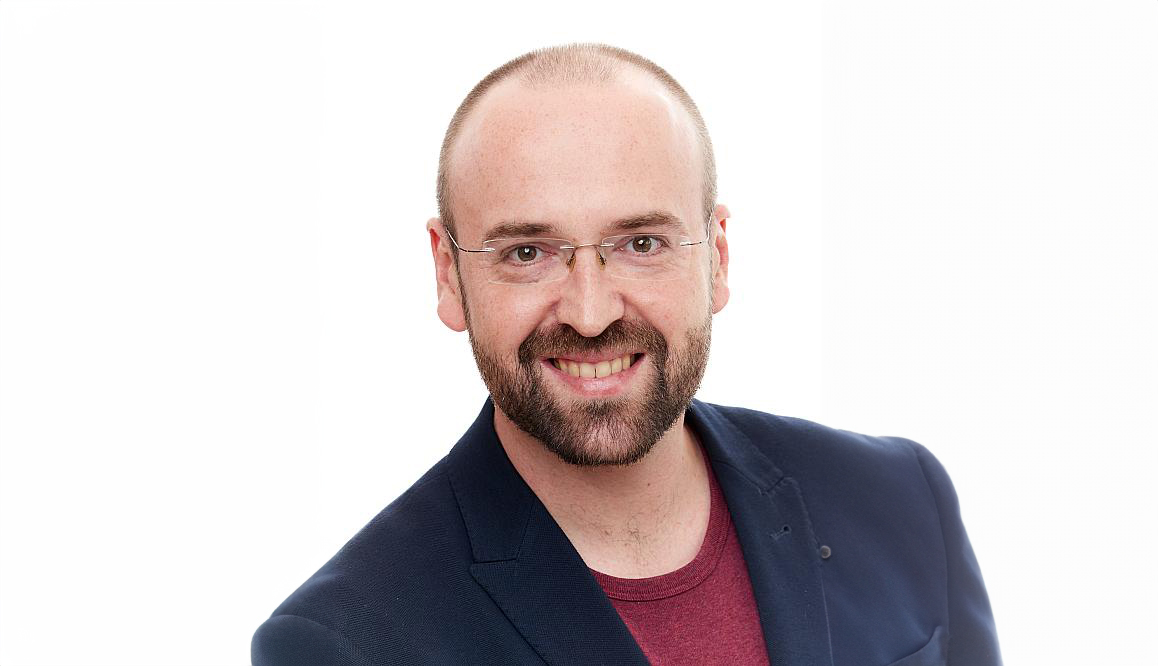Timur Uman’s eyes light up when the Swedish Institute is mentioned; there is a long and productive relationship between him and SI. It began in 2002 when he was rewarded an SI scholarship to pursue a master’s programme in business administration at Kristianstad University.
-Getting this opportunity changed my whole life. The only thing I knew about Sweden then was the Swedish model, as I had written a bachelor’s thesis on how it could be implemented in Latvia. Everything else was new.
Timur Uman quickly adapted to the new country and was offered a doctoral position in Lund to write a thesis on cultural diversity in management groups. Alongside his studies, the contact with SI continued:
-I was offered the opportunity to partake in several contact trips with SI. In 2008, we travelled to Ukraine, and in 2009, to Armenia and Georgia.
SI carried out these contact trips and similar initiatives for a period in order to increase contacts between Swedish organisations and organisations in SI’s cooperation countries.
Throughout the interview, Timur Uman frequently returns to the concepts of diversity and responsibility. He is Swedish and Latvian, Jewish and Russian speaking, married to a German with three Swedish children who speak four languages.
-I truly live diversity and see it as a responsibility that I can and want to give back from what I have learned in Sweden and received from SI. I am privileged to be in a societal position where I can contribute to change, and Ukraine holds a special place in my heart. I may not be able to change all of Ukraine, but you must start somewhere. I almost feel that it is my duty to help others; I have no choice. It is an honour to do for Ukraine, what others did for Latvia in the 1990s. There are also not many senior researchers who speak Russian but come from a neutral country like Latvia; that is also something tangible I can contribute with.
Today, Timur Uman is a professor of Business Administration at Jönköping International Business School, Jönköping University. Much of his research focuses on creating conditions for accountability in the public sector, something he sees as necessary in Ukraine to establish structures that promote democratisation and human rights.
-The new project, MCAD, is based on lessons from a previous SI-funded project, “Accountability for sustainability,” and customised for a Ukrainian context. We have a fantastic cooperation with Jönköping municipality. They wanted to get involved in Ukraine’s reconstruction and got in touch with Konotop – a smaller municipality in northeastern Ukraine that has been occupied but is now liberated. It feels truly rewarding to be part of developing structures for accountability between politicians and officials and building the structures needed for society to function.
The MCAD project has three parts: the first is an online lecture series on the Swedish model, legal aspects, accountability, and democratisation. The main part is led by Jönköping International Business School, Jönköping University, but Jönköping municipality contributes with insights into practical implementation. The second part involves five politicians and five officials from Konotop who will visit Jönköping for inspirational visits to municipal companies such as the waste management company and the social welfare department.
-It has been a pleasure to cooperate with Jönköping municipality on this. It’s often just a matter of picking up the phone and calling leading municipal politicians or the city director. The distances are not as long as in a larger municipality, and it becomes a completely different type of cooperation, says Timur Uman.
In the final part of the MCAD project, participants will design mini-projects to improve conditions for accountability by creating structures for this in Konotop. Several teachers at Jönköping University will serve as mentors and follow up on the implementation of participants’ projects.
Timur Uman acknowledges the risks of conducting projects in war-torn Ukraine but also emphasises the importance of not being discouraged and of adopting a flexible attitude.
– One must be prepared for not knowing if they have electricity or internet and be able to change and move activities. For example, it is important to be able to record lectures so that Ukrainians can watch them when it suits them. Another piece of advice is to have someone in the project who can speak Ukrainian or Russian and to maintain continuous dialogue to provide need-based assistance.
Timur Uman describes the SI Baltic Sea Neighbourhood Programme as a non-bureaucratic and efficient funding programme:
-SI, for me, is an example of how public funds should be managed and how non-bureaucratic it can be to seek funding.
Facts:
The project MCAD; Municipal Governance, Accountability and Democratisation, is funded within the SI Baltic Sea Neighbourhood Programme and the special call aimed at target groups in Ukraine that was carried out in the summer of 2023.
In March, SI will open a first call for proposals within a new programme, the SI Ukraine Cooperation Programme , which provides funding fund projects aimed at supporting Ukraine’s reconstruction, reform efforts, and EU integration in areas such as inclusive economic development, entrepreneurship and trade, human rights, democracy, rule of law, and gender equality.
